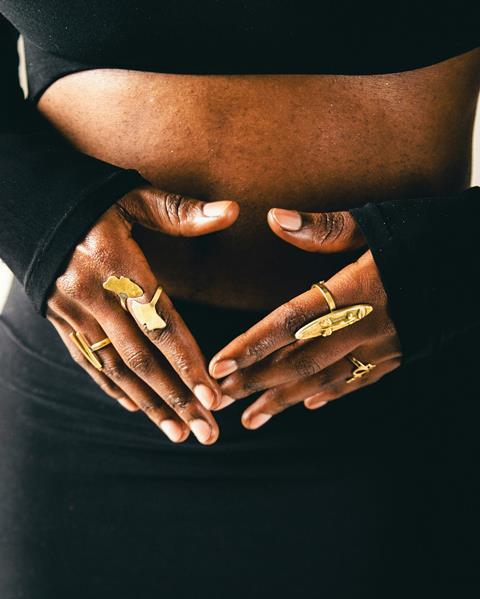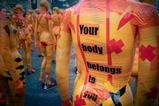Sally Hope explores the tragic case of Adriana Smith - a Black nurse whose death and forced posthumous life support to preserve her pregnancy have ignited urgent ethical and theological questions. She challenges us to consider how pro-life laws may in fact devalue the lives and dignity of the women they affect most.

In February this year a Black American woman, Adriana Smith went to hospital with searing headaches, no investigations were carried out, she was discharged and sent home with medication. 24 hours later she was found gasping for air and rushed to hospital where blood clots were found on her brain. She was declared brain dead.
Usually, in cases of brain death, the family is given time to say their goodbyes and then the body is disconnected from the ventilator. However, Adriana Smith was around nine weeks pregnant and medics at the hospital interpreted their state’s LIFE act to mean that Adriana’s body must be kept on artificial life support to incubate the life growing within her. Her family was given no choice in this matter. Baby Chance was delivered on 13th June 2025 weighing less than two pounds.
READ MORE: Have we forgotten God in our debates on abortion?
Adriana is the latest black woman to become a casualty of laws which grant full constitutional rights to the unborn whilst dehumanising women and reducing them to little more than walking wombs, with fewer human rights than their potential offspring.
Those of us who are pro-life may feel that it is right that a nine-week-old foetus be granted full legal personhood in law. After all, if life begins at conception, then it shouldn’t matter that a nine-week-old foetus is only the size of a strawberry, barely past embryo stage and unable to support its own life; it is human life and it is precious.
However, the problem with personhood laws is that obstetricians often find the needs of the mother and the needs of the foetus to be in conflict
However, the problem with personhood laws is that obstetricians often find the needs of the mother and the needs of the foetus to be in conflict; so, doctors regularly find themselves having to prioritise the needs of one over the other. It is not always possible for doctors to simultaneously uphold the same ethical responsibilities to two humans, one of whom is dependent on the other’s body for survival. As personhood laws have been enforced in America, we have seen several examples of women dying1 because of their doctors being fearful of prioritising the health of the mother over that of the foetus.
READ MORE: Why I believe abortion is not healthcare
Black mothers living in states where there are abortion bans are more than three times as likely to die as white mothers in those states. One reason for this disparity is systemic racism which results in black women not being listened to by healthcare professionals; research shows that doctors routinely ignore the concerns of their black, female patients.
Adriana Smith was a nurse, and despite this, her concerns about her headache were not taken seriously
Adriana Smith was a nurse, and despite this, her concerns about her headache were not taken seriously, she was not given the care she should have been given when she attended hospital, as a result, she died. It adds insult to injury that the same system that did not afford her the healthcare she deserved then denied her dignity in death, it further demonstrates how as a person who was both black and female, her humanity mattered less than that of an embryo.
READ MORE: ‘I survived abortion’
Of course, many will argue that as Adriana had died, her needs did not conflict with those of her baby, and that using her body to save the life of her potential child is surely a good thing. It is. However, the ethical principle of bodily autonomy still applies in death, and Christians have always fought for this, which is why both the US, and the UK have strict laws around organ donation. We recognise that to remove organs from a body, without the consent of the human to whom the body belongs, (or their family if they are unable to make that decision) is an act of desecration, even if those organs would be used to save other human lives, and even if we think they should consent to organ donation. In the same way, artificially keeping organs alive, through invasive procedures, without the consent of the family is an act of desecration, even if doing so saves a life, even if we believe it is the right choice.
It’s not only about Adriana’s bodily autonomy though; as Chance was unable to make decisions for himself then the decisions about his life, just like the decisions about his mother’s life, should have fallen to his next of kin; the family of his mother. There is every likelihood that given the choice the family would have chosen the same course of action. However, the denial of this choice was, according to Adriana Smiths mother, “torture.” It is dehumanising and it demonstrates exactly how little regard US lawmakers have for the worth, dignity and humanity of women, particularly black women.
Women are more than simply vessels to bring life into the world, they are life themselves, they are wonderfully created image bearers of God, and daughters of the King of Kings. As Christians we should be concerned at how laws we may want to support because they seem to be pro-life, are stripping women of their dignity, humanity and sometimes even their lives.




































No comments yet